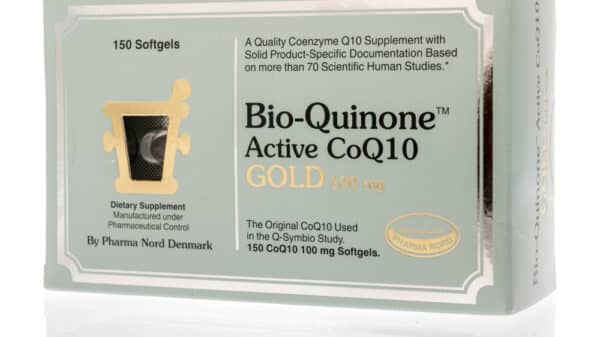When discussing hormones, testosterone often floats up as a label primarily earmarked for men. However, women also produce testosterone, albeit in smaller amounts, and it plays a critical role in their health. This article delves into the functions of testosterone in women, the consequences of low levels, its benefits, and natural methods to enhance testosterone production.
What Does Testosterone Do for Women?
Testosterone is not just a male hormone; it’s essential for women’s overall well-being. Produced in the ovaries, adrenal glands, and peripheral tissues, testosterone has diverse roles that impact various bodily functions:
– Supports libido: Testosterone plays a vital part in sexual drive for women.
– Maintains bone density: Adequate levels of testosterone are crucial for strong bones.
– Influences mood and cognition: It affects how motivated and mentally sharp one feels.
– Regulates metabolism: Testosterone contributes to fat distribution and metabolic processes.
– Affects fertility: It plays a role in ovarian functioning, which can influence fertility.
Recognizing how testosterone affects both physical and emotional health is essential for women.
Causes of Low Testosterone in Women
A natural decline in testosterone levels is a normal part of aging, particularly during perimenopause and menopause. However, several factors can contribute to lower testosterone levels:
1. Age: As women age, hormone production inherently decreases.
2. Medical Conditions: Conditions such as polycystic ovary syndrome (PCOS) or adrenal insufficiency can affect hormone levels.
3. Lifestyle Factors: Stress, poor diet, lack of exercise, and certain medications can lead to reduced testosterone levels.
Common symptoms indicating low testosterone may include:
– Decreased sexual desire
– Chronic fatigue
– Mood fluctuations, including depression
– Loss of muscle tone
– Unexplained weight gain, particularly around the abdomen
– Sleep issues, such as insomnia
– Cognitive difficulties, often termed “brain fog”
If you experience several of these symptoms, it’s advisable to consult a healthcare provider.
Benefits of Optimizing Testosterone Levels
Maintaining balanced testosterone levels may enhance quality of life for women. Some benefits include:
Boosting Energy and Stamina
Testosterone contributes to various mechanisms that enhance energy levels.
– Muscle health: It promotes muscle protein synthesis, leading to increased muscle strength and endurance.
– Red blood cell production: Adequate testosterone helps stimulate erythropoiesis, increasing red blood cell counts for improved oxygen delivery and stamina.
– Cognitive function: Enhanced mood and motivation tied to testosterone levels can lead to greater energy and the drive to engage in physical activities.
Studies have confirmed that hormonal responses to exercise in women indicate testosterone’s role in energy adaptation, highlighting its significance during physical exertion.
Enhancing Sexual Health
Testosterone is vital for female sexual function and can enhance both sexual desire and satisfaction. Its role becomes especially pronounced as levels drop during menopause, leading to conditions such as hypoactive sexual desire disorder (HSDD), marked by a consistent lack of interest in sexual activity.
Research suggests that testosterone supplements can alleviate HSDD in women, improving sexual health and overall life satisfaction.
How to Naturally Boost Testosterone Levels
For women looking to enhance testosterone levels, several lifestyle approaches can be beneficial:
– Regular Exercise: Engaging in both cardio and strength training can naturally stimulate hormone production.
– Healthy Diet: Consuming balanced meals rich in healthy fats, proteins, and vitamins can aid in hormone regulation.
– Stress Management: High stress can lead to hormonal imbalances. Practices like yoga, meditation, or even engaging in hobbies can mitigate stress effectively.
– Sleep Well: Prioritize quality sleep to support hormonal health, as sleep deprivation can adversely affect testosterone levels.
Understanding the multifaceted role of testosterone in women’s health is crucial. From energy levels to sexual wellness, testosterone impacts diverse areas of life. A proactive approach to maintaining hormonal balance can lead to improved physical health and emotional well-being, encouraging women to explore their health fully. If low testosterone is suspected, talking to a healthcare provider can set the stage for finding effective solutions tailored to individual needs.### Understanding the Impact of Testosterone on Women’s Health
Testosterone is widely recognized for its role in male health, but it also plays a significant part in women’s physical and mental well-being. Numerous studies have demonstrated that testosterone can enhance various aspects of women’s health, particularly after menopause or in cases of hormone-related disorders. Here, we explore the diverse benefits of testosterone and the mechanisms through which it operates.
Enhancing Sexual Function
Testosterone influences sexual health in women through various mechanisms. It plays a pivotal role in:
– Neurotransmitter Modulation: By affecting brain regions associated with sexual motivation and reward, testosterone can significantly enhance libido in women.
– Sensory Receptor Sensitivity: Increased sensitivity in erogenous zones may lead to improved sexual arousal and satisfaction.
– Mood and Energy Levels: Enhanced mood and reduced fatigue can indirectly boost sexual desire.
Research published in the *New England Journal of Medicine* highlighted the efficacy of a testosterone patch. Postmenopausal women with hypoactive sexual desire disorder (HSDD) showed an increase of 2.1 satisfying sexual episodes per month with testosterone therapy compared to only 0.7 episodes in the placebo cohort. These findings underscore testosterone’s potential as a safe and effective option for improving sexual function in women.
Additionally, a comprehensive meta-analysis involving 36 randomized controlled trials found that testosterone treatment could significantly enhance sexual desire, arousal, orgasm, and overall sexual satisfaction, while also reducing psychological distress related to sexual performance.
Building Lean Muscle and Strength
Testosterone is integral to muscle development and strength in women, albeit often overlooked. Key contributions include:
– Androgen Receptor Activation: Testosterone activates receptors in muscle tissue, facilitating muscle growth through protein synthesis.
– Muscle Fiber Influence: It can also affect the size of muscle fibers, ultimately contributing to increased muscle mass.
– Hormonal Interactions: The hormone interacts with growth hormones and insulin-like growth factors, which are essential for muscular development.
A recent study found a positive correlation between bioavailable testosterone levels and increases in muscle mass and strength among pre-menopausal women undergoing resistance training. This suggests that bioavailable testosterone may be more directly linked to muscular gains than total testosterone levels.
Managing Weight and Reducing Fat Mass
Research indicates that testosterone may help in managing body composition, particularly in postmenopausal women or those with low testosterone levels. Important mechanisms include:
– Reduction of Abdominal Fat: Testosterone has been shown to decrease visceral fat, which is closely associated with metabolic health risks.
– Increase in Lean Muscle Mass: Promoting muscle protein synthesis, testosterone helps boost basal metabolic rate, thus aiding in weight management.
– Improvement in Insulin Sensitivity: By affecting how the body stores and utilizes fat, testosterone plays a role in better metabolic function.
Studies show that women receiving testosterone treatment experienced significant reductions in body fat and improvements in lean body mass, making testosterone therapy a promising avenue for weight management solutions.
Enhancing Mental Clarity, Focus, and Mood
Testosterone is also linked to cognitive function and emotional well-being. It may impact mental health through:
– Modulation of Neurotransmitters: Testosterone affects dopamine and serotonin, which are crucial for mood and cognition.
– Neuroprotective Effects: The hormone may promote neuronal growth and protect against neurodegenerative conditions, thus enhancing cognitive function.
– Regulation of Brain Metabolism: Testosterone may influence glucose metabolism in brain areas associated with mood and cognitive processes.
A recent study found that women receiving transdermal testosterone therapy reported significant enhancements in mood and cognitive function over four months. These results hint at the potential of testosterone to alleviate some cognitive decline associated with menopause.
The multifaceted benefits of testosterone for women extend far beyond mere hormonal balance. From improving sexual function and building muscle to aiding weight management and enhancing mental clarity, testosterone therapy represents a potentially transformative option for many women, especially during pivotal stages like menopause. As research continues to unfold, understanding these benefits can empower women to make informed decisions about their health and well-being.### Understanding the Role of Testosterone in Women’s Health
Testosterone, often considered a male hormone, plays an essential role in women’s health as well. Despite the lower levels found in women, testosterone influences various physiological processes crucial for overall well-being. Here, we explore the significant benefits of testosterone for women, how to naturally enhance levels, potential risks of therapy, and common queries surrounding this vital hormone.
Benefits of Testosterone for Women
1. Enhances Mood and Cognitive Function
Recent studies show that testosterone therapy may help improve brain activity in women suffering from anorexia nervosa and other psychological conditions. By normalizing activity in regions critical for cognitive function and mood, testosterone can enhance mental clarity and emotional stability.
2. Strengthens Bone Health and Reduces Osteoporosis Risk
Testosterone is vital for maintaining strong bones, especially in postmenopausal women. It stimulates osteoblasts, the cells responsible for bone formation, and inhibits osteoclasts, which cause bone resorption. This balance is crucial for preventing osteoporosis, highlighting the importance of maintaining adequate testosterone levels as women age.
3. Balances Hormones
Balanced testosterone levels are linked to improved mood and a lower risk of depression. Research suggests that both low and high testosterone levels can contribute to depressive symptoms in women, reinforcing the need to maintain equilibrium for emotional well-being.
4. Alleviates Post-Menopausal Discomforts
Testosterone therapy has been explored as a solution for alleviating physical discomforts that accompany menopause, such as sexual dysfunction. Studies have demonstrated significant improvements in sexual desire and function, providing potential benefits for postmenopausal women’s quality of life.
Increasing Testosterone Levels Naturally
If you’ve diagnosed low testosterone levels, several natural methods can help restore balance:
– Engage in Strength Training: Regular resistance workouts can stimulate testosterone production.
– Optimize Nutrition: Incorporate adequate proteins and healthy fats, which are crucial for hormone production. Foods rich in omega-3 fatty acids, avocados, and nuts are particularly beneficial.
– Practice Stress Management: Techniques like yoga and meditation can enhance overall health and hormone regulation.
– Maintain a Healthy Weight: Obesity can disrupt hormone levels, so achieving and maintaining a healthy weight is essential.
– Prioritize Sleep and Sunlight: Quality sleep and natural sunlight exposure can positively affect testosterone levels.
Medical Options for Increasing Testosterone
For those who need more structured treatment, medical interventions are available:
– Testosterone Replacement Therapy (TRT): Administered via creams, gels, or patches under medical supervision.
– DHEA Supplements: As a precursor hormone, DHEA might aid in elevating testosterone levels but should be discussed with a healthcare professional before starting.
Risks and Side Effects of Testosterone Therapy
While the benefits of testosterone therapy are significant, potential side effects should not be overlooked. These can include:
– Acne or oily skin
– Hair growth in unwanted areas
– Mood swings or increased irritability
– Rare occurrences of voice deepening or clitoral enlargement with long-term high doses
Regular monitoring by a healthcare provider is essential to minimize risks and ensure the treatment remains safe and effective.
Image Source: Unsplash
































